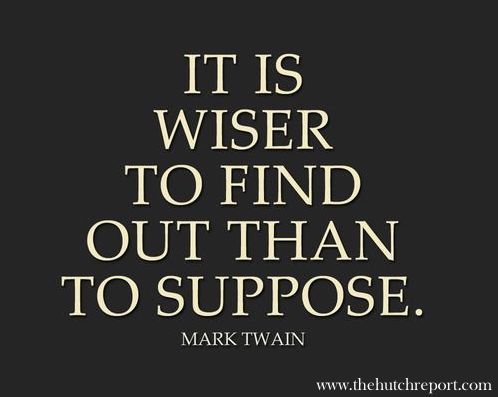Do you really care what anybody tells you? Maybe you should!

To listen, sounds like the easiest thing in the world to do, assuming you have no impairments. However, it is not something that is practiced often. You don’t have to take my word for it. The next time you are speaking with others, pay close attention to how many are actually listening, or understanding, what you are saying. How about yourself? Are you actually listening to the others or are you formulating what you want to say, while you are waiting for your turn to speak?
This is quite often the source of arguments and disagreements. The disagreement is not always derived from the difference in opinions. It is often that one side has not really gained an understanding of what the other party is trying to convey. Somebody may be hearing what you are saying but they do not understand what you have said. At least, not in the way you had intended it to be understood.
Here lies the barrier to effective communication. In order to respond to what someone has told you, you have to, not only listen well to what they are saying but also to understand what they are saying in the way they intended you to understand.
I had the chance to study with someone, who, at the time was one of Ford’s most effective and successful salesmen in the country. With him I learned the value of effective communication in sales by using some simple skills. One of the skills he practiced was clarification. By clarifying the message that somebody has communicated to you, you are able to remove any of the ambiguities that may be present. You keep doing this until you have complete clarification and understanding of what the speaker is telling you, before you are able to respond.
Guidelines to achieving this are:
Admitting if you not sure about what the speaker means,
Asking for them to repeat what they said,
Restating what the speaker has said as you have understood it,
Asking for specific examples, and
Using open, non-directive questions (allowing for Yes or No answers may just leave the door open to more ambiguity).
Here is a simple example using a statement made by Ben Carson during a Fox Debate during last year’s Presidential Election. This is how a fictitious listener would clarify the statement:
Ben Carson – “The Chinese are there, in Syria”.
Listener – If I understand you correctly (clarifying statement), you are saying that the Chinese have soldiers present and on the ground in Syria?
Ben Carson – “No, I mean that there are Chinese made weapons currently being used in the conflict.” (Clarification made)
As you can imagine, the original statement made by Ben Carson was wide open to interpretation. All the media outlets translated the statement, as they understood it. However, not as the statement was meant to be understood (as was clarified later). This would not have been an issue if someone had just attempted to clarify the statement immediately.
When I first started using this skill, in order to become more effective at communicating I discovered something that was shocking to me. On many occasions when I attempted to clarify statements the speaker did not want to be clarified. They felt that they were somehow being backed into a corner. They thought that by making a statement perfectly clear to me that I would somehow counter attack with a fact that would render their statement false. In other words, they were afraid being proven wrong and thereby finding themselves in a losing position.
Unfortunately for many, the goal in a conversation is specifically not to be understood but to simply win the discussion at all costs. Winning an argument feeds the ego. Many strive, not to be enlightened or discover but to conquer.
If someone’s goal is to win an argument or be seen as the cleverest in a discussion then the concept of effective communication is, in fact, useless. What is the sense in trying to communicate effectively with someone who doesn’t even wish to be understood? Being vague, confusing and loud become the tools of choice in order to overwhelm and dominate a conversation with a goal of winning.
However, if you do choose to be completely present in a discussion, a good listener, and understand exactly what the speaker is trying to convey, then the best form of effective communication is clarification, using statements such as:
“Did you mean to say that………”
“If I understood you correctly, you are saying ……..”
You will remove a lot of doubt or uncertainty as to what the speaker is actually trying to make understood. This is a form of reflecting, or taking a speaker’s statement and reflecting it back to them, whereas they become the listener of their own communication. This also helps them to understand if their message has been understood properly.
The next time you see a Bill Gates or a Noam Chomsky interview or discussion, examine how intensely they are listening and how they often clarify what is being said. Their goal is to learn, understand and be understood. It is a skill worth pursuing.
an excellent post - people do, however, feel intimidated when questioned too closely - I'm one of them - a result of some early childhood events, but I'm working on it
Thanks for the comment. Any time spent improving yourself is a step forward.
I agree
Assuming things is many times wrong.